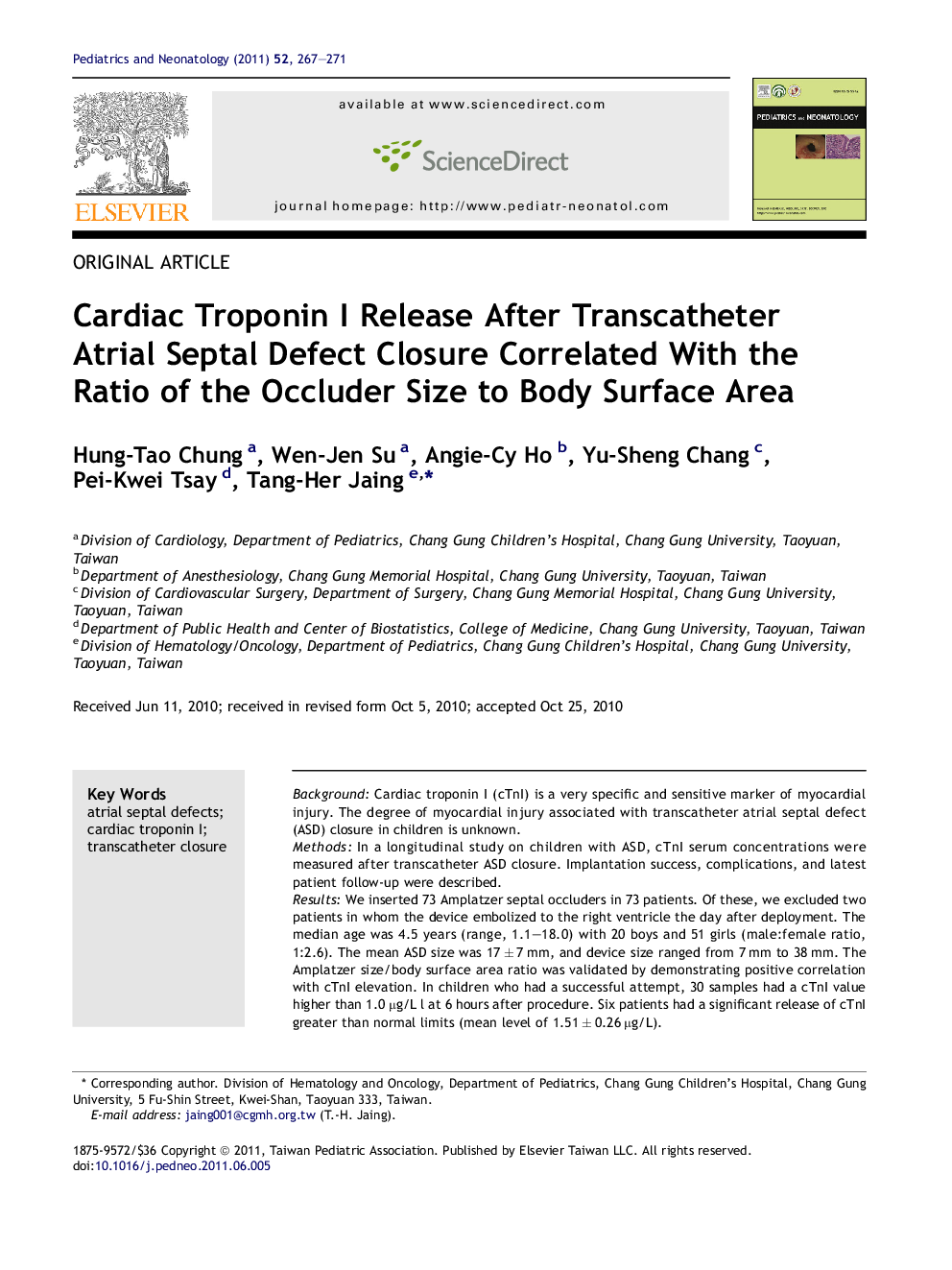| Article ID | Journal | Published Year | Pages | File Type |
|---|---|---|---|---|
| 4175365 | Pediatrics & Neonatology | 2011 | 5 Pages |
BackgroundCardiac troponin I (cTnI) is a very specific and sensitive marker of myocardial injury. The degree of myocardial injury associated with transcatheter atrial septal defect (ASD) closure in children is unknown.MethodsIn a longitudinal study on children with ASD, cTnI serum concentrations were measured after transcatheter ASD closure. Implantation success, complications, and latest patient follow-up were described.ResultsWe inserted 73 Amplatzer septal occluders in 73 patients. Of these, we excluded two patients in whom the device embolized to the right ventricle the day after deployment. The median age was 4.5 years (range, 1.1–18.0) with 20 boys and 51 girls (male:female ratio, 1:2.6). The mean ASD size was 17 ± 7 mm, and device size ranged from 7 mm to 38 mm. The Amplatzer size/body surface area ratio was validated by demonstrating positive correlation with cTnI elevation. In children who had a successful attempt, 30 samples had a cTnI value higher than 1.0 μg/L l at 6 hours after procedure. Six patients had a significant release of cTnI greater than normal limits (mean level of 1.51 ± 0.26 μg/L).ConclusionIn our study, transcatheter ASD closure induced minor myocardial lesion, the extent of which depended on the ratio of the occluder size to body surface area (p < 0.05) but not on the patient’s weight or preprocedural left ventricular ejection fraction.
